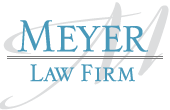 WHEN A PERSON DIES, probate is the court-supervised process which sees to it that the following steps are completed:
WHEN A PERSON DIES, probate is the court-supervised process which sees to it that the following steps are completed:
- The death notice is published.
- The will is filed and validated.
- The person’s final bills and taxes are paid.
- Assets are transferred out of the person’s name and distributed according to the person’s wishes, or Florida law if there is no will or trust.
Whether you have a will or not, your estate will go through probate but a well-thought out estate plan can eliminate or reduce the impact of probate. Probate concerns include:
- The process can be time consuming during which your loved ones may not have access to your assets they need.
- Costs can be high with probate, going up to 6% of your entire estate.
- When you go through probate, the process becomes public information.
- If you only have a will, it is open to challenge by creditors and family members when you submit it for probate.
Meyer Law Firm regularly handles Florida probate cases and understands the intricacies of the laws.
Learn More About Probate
The following pamphlet from The Florida Bar provides additional information on the probate process.
Below are questions our new clients ask most frequently about probate. Since the legal world has many variables which make it difficult to answer most questions with a brief paragraph, we recommend that you use these answers as informational only and seek legal advice to ensure that your specific case is handled to meet all legal requirements.
What is probate?
When a person dies, probate is the court-supervised process which sees to it that the following steps are completed:
- The death notice is published.
- The will is filed and validated.
- The person’s final bills and taxes are paid.
- Assets are transferred out of the person’s name and distributed according to the person’s wishes, or Florida law if there is no will or trust.
What are the disadvantages of probate?
Whether you have a will or not, your estate will go through probate but a well-thought out estate plan can eliminate or reduce the negatives below:
- The process can be time consuming during which your loved ones may not have access to your assets they need.
- Costs can be high with probate, going up to 6% of your entire estate.
- When you go through probate, the process becomes public information.
- If you only have a will, it is open to challenge by creditors and family members when you submit it for probate.
What are probate assets?
Probate assets include any assets the deceased owned in his name at death or co-owned without a provision for automatic ownership succession.
- Bank or investment accounts in the sole name of the deceased.
- Life insurance policy payable to the decedent’s estate.
- Real estate in the name of the deceased or as tenants in common.
The following are not considered probate assets:
- Bank or investment accounts held jointly with sole survivorship.
- Life insurance payable to a specific beneficiary.
- Annuity contract payable to a specific beneficiary.
- Real estate with stated rights of survivorship.
The above are not complete lists so it is best to discuss with your estate planning attorney.
What if I don’t have many assets?
Florida has a simple “summary administration” process for estates worth less than $75,000. And when the value of the estate assets isn’t more than the cost of final expenses such as funeral bills or medical expenses, the person paying the final expenses can dispose of personal property simply by filing with the court a “Petition for Disposition of Personal Property Without Administration”.
Who supervises the probate administration?
A circuit judge will preside over probate proceedings.
What is a personal representative?
A personal representative may also be called an executor or administrator. This person can be named by you in your estate planning documents or, if not specified or not qualified, the court will appoint a personal representative. A personal representative can be an individual, bank or trust company.
What does a personal representative do?
The personal representative has a legal duty to administer the probate which has many steps including just a few listed below:
- Identify the probate assets of the deceased.
- Give notice to potential claimants by publishing a notice to creditors.
- Pay any taxes due.
- Pay any expenses incurred to administer the estate.
- Distribute the probate assets to beneficiaries.
- Account to beneficiaries.
The list above is only a partial list. The personal representative can hire professionals, such as Meyer Law Firm to assist in the complete administration of the probate estate.
